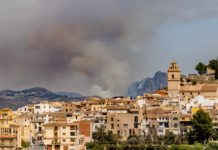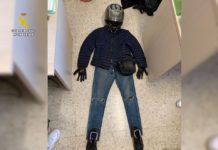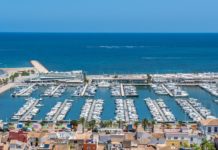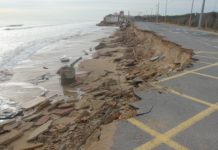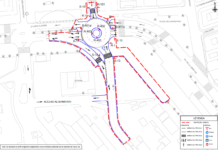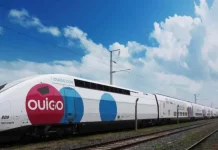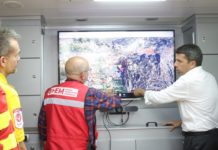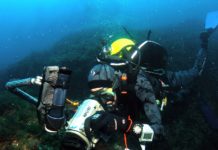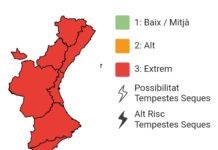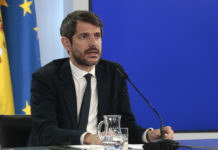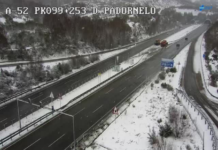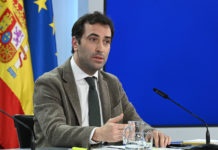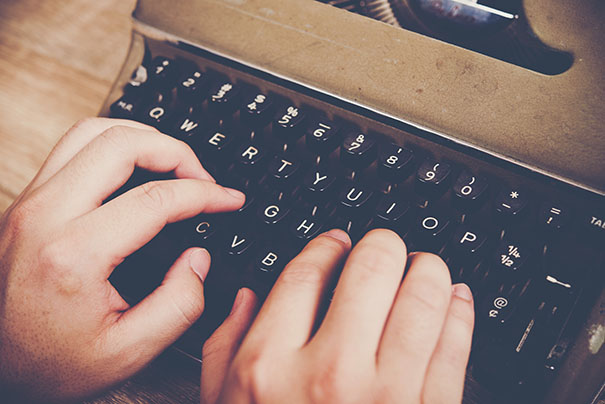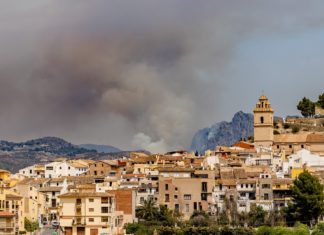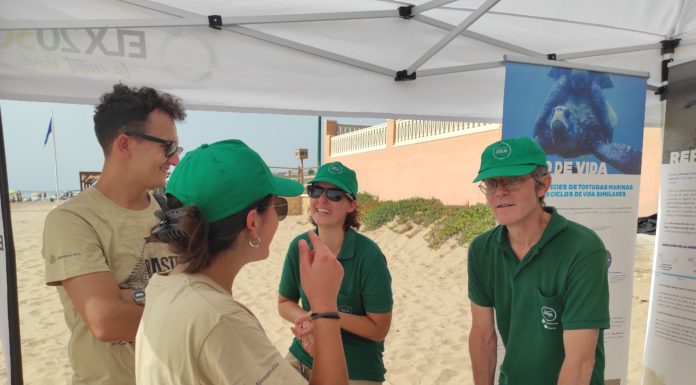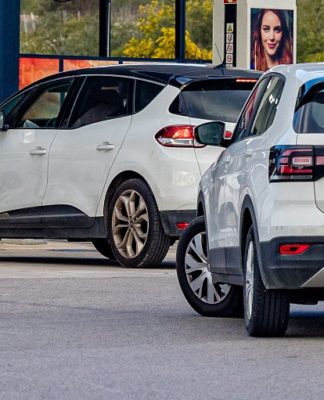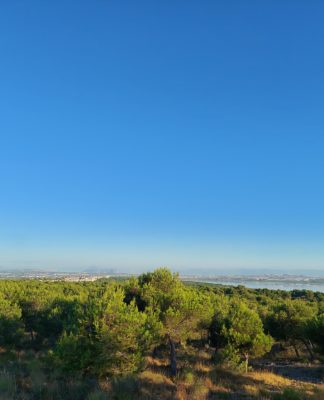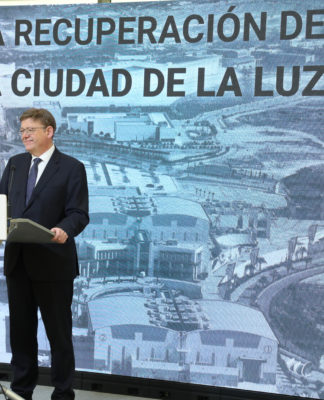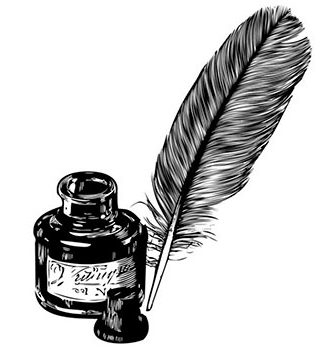Email
March 23
Valencia
Contributors David Whitney and Fiona Whyte wrote moving and profound poems about the Russian invasion of Ukraine. Only poets can get under the surface and reflect a deep almost spiritual interpretation of a conflict like this.
The Russian invasion of Ukraine is brutal, indiscriminate in its violence and amounts to a full on war crime. But it’s not so simple as ‘Russia is bad’, the ‘West is good’.
When the Soviet Union collapsed and the Berlin Wall was torn down, there was the problem of nuclear weapons stationed in the now free East European countries. There were a number of imprecise accords, understandings and agreements between the West and Russia about how that was to be dealt with, probably the most important ones being the Lisbon Protocol and the Budapest Memorandum on Security Assurances. The gist was that Russia would remove these nuclear weapons back to its territory, the Ukraine, Belarus and Kazakhstan would be autonomous, and neither the West nor Russia would interfere militarily, economically or in any other way in their affairs.
Following the falling out of favour in Russia of Gorbachev (and then Yeltsin) who spearheaded openness in Russia and a new friendlier East-West relationship, Putin came to power. At first he too was open to a friendlier relationship with the West. But as the years went on the relationship between the West and Russia deteriorated back to Cold War levels of distrust, and within Russia the leadership returned to the authoritarian dictatorial ways of the Brezhnev Cold War era.
Putin was the first to break the accords and agreements about the sovereignty of Ukraine, invading and annexing the Crimea in 2014. Also, on the Eastern frontier of Ukraine with Russia there are areas where Russian speakers and Russian sympathisers live and are the majority, particularly the Donetsk and Lugansk areas. These areas have been in turmoil for some years with, for sure, some Russian influence or interference.
Within the confines of the above necessarily brief historical outline, that brings us up to recent times. In recent years the West and NATO have been regularly carrying out military exercises and war games along the Russian border and seriously holding out the idea to Ukraine that it could be part of NATO. At the same time the EU as part of its constant expansionist policy has been holding out the idea that the Ukraine could join the European Union. And the Ukrainian government was increasingly drawn to a future with NATO and the EU.
Despite its own incursions into the Crimean, Donetsk and Lugansk regions of Ukraine, for Russia this was a red line. Ukraine being a part of the West and NATO, and NATO carrying out military exercises along most of Russia’s western frontier and alongside the Russian Black Sea Fleet to the south of Ukraine would be strategically and militarily disastrous for Russia. If Ukraine became part of NATO, then almost all of the western frontier of Russia from the Baltic in the north to the Black Sea in the south would be open to NATO and the West. Putin could never accept that.
After the Second World War up until the fall of the Berlin Wall, several east European countries were occupied by the Russian military. I spent a bit of time in one of those countries and at that time spoke fairly fluent Russian so have a bit of first hand experience of the Russian outlook…I rate it no higher than that. Ordinary Russians are no more warlike than ordinary people throughout the world. But they have a deep sense of pride in their land, history and culture. Even during the time of the Czars, and certainly since the Bolshevik Communist revolution of 1917, they have been paranoid about their borders and the perceived threat from the West. Thirdly, for historical reasons Russians respect strong leaders.
If you put all the above together… the pride in their country, the respect for strong leaders, the paranoia about their frontiers, the persistent military manoeuvres by the West along Russia’s border, and the apparently serious offers to Ukraine of becoming part of NATO and the EU, then you have the reasons that convinced Putin that he had to invade Ukraine to prevent the threat to his country.
To understand something is not to agree with it, side with it or apologise for it. As I said above, the Russian army is committing full on war crimes in the Ukraine against a valiant but much weaker innocent population.
But it’s probably possible to draw a few conclusions:
1) To some extent the West led the Ukraine up the garden path offering membership of NATO and the EU. When things turned nasty the EU emphasised that membership of the EU was years away. NATO baulked at direct confrontation with Russia and said they would provide arms and humanitarian aid but would not intervene militarily because Ukraine was not part of NATO.
2) Centralising all the power in Europe in the EU project and having an EU army separate from NATO and run by civil servants in a little town in Belgium is divisive and completely the wrong way for Europe to go…it’s an historic mistake. Europe without America will always be a paper tiger militarily.
3) Many countries of the EU and particularly Germany have run down their own means of producing energy for electricity and gas and have replaced that with a heavy reliance on Russian gas as their main source of energy. The Ukraine crisis has been a wake up call. Even the most avid supporter of the EU project can see the folly of EU countries becoming heavily dependant on gas from Russia. The billions of euros paid by European countries to Russia for gas every month has enabled Putin to strengthen Russia’s military capability.
4) The brave President of the Ukraine Zelenski has now said his country will accept it cannot be part of NATO. The minimum that could persuade Putin to end the invasion of Ukraine would be a clear, cast iron Treaty signed by the West, Ukraine and Russia under the auspices of the UN that the Ukraine would never become part of NATO or the EU; that Crimea, Donetsk and Lugansk would now be recognized as a part of Russia; and that the West would no longer conduct military exercises within 50 kilometres of Russia’s western border. If Putin were to withdraw with less than that, he knows he would be finished as a Russian leader, just as Khrushchev was finished when he backed down to Kennedy in the Cuban missile crisis of 1962. It’s far from perfect and it partially rewards Russia’s invasion. But, with the unlikely exception of Putin being sensationally ousted from within Russia, it’s the only practical way out of massive and imminent further bloodshed.
Make no mistake, if this is not resolved within Ukraine, it will spill over to other European countries and Europe will be in its biggest military and existential crisis since the Second World War.
Brian









